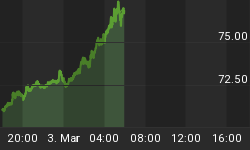Cosmo Kramer of Seinfeld fame always wanted to be a banker. Will Treasury Secretary Geithner's Public-Private Investment Program (PPIP) finally allow him to fulfill his dream? PPIP should have no shortage of private investors signing up to buy financial institutions' toxic assets - sorry, "legacy" assets. After all, the purchasers will obtain government-guaranteed financing, government-guaranteed default-risk protection and plenty of leverage to boost returns. The question is how eager will financial institutions be to sell their legacy assets. Given all the incentives for private buyers to participate, it is likely that bid prices for legacy assets will be above current market prices. So, those institutions that already have marked their legacy assets to current market prices might be willing sellers as they might now be able to book some profits. However, those institutions that are still carrying some of these impaired assets at historical cost will be less willing to sell because they would have to book losses.
We suspect that the regulators will "encourage" this latter group of institutions to sell their impaired assets. After all, one of the arguments for not marking down the value of legacy assets to market was that there was no market. In the not-too-distant future there will be a market. But what if selling legacy assets into the PPIP results in a selling institution becoming under capitalized? The regulators will tell said institution to raise additional capital in the private market. But what if the cost of this new capital is prohibitive? This is where Cosmo Kramer comes in. The regulators/Treasury will tell this institution that it has a new partner - the taxpayers of America. That is, the federal government is likely to inject common equity capital into institutions that are unable to raise capital in the private market. Existing stockholders will see their equity diluted. In some cases, all they may have left is, in effect, a call option on the future profitability of the institution. Call this "nationalization lite." So, Cosmo Kramer will finally achieve his life's dream - he will be a banker. Or will he? You have to be a taxpayer to be a part owner of banks in this scenario. And since there is no known source of Kramer's income, it is doubtful that he is a taxpayer.
As the narrator on the Monty Python show would say, and now for something completely different. Some are arguing that participants' in the market for credit default swaps (CDS) should have a vested interest in the bet or "skin in the game." That is, unless one owns the liability of a company, one should not be allowed to purchase insurance against the liability's default. But wait a minute. Does the Chicago Board of Trade (CBOT) forbid the dentist in Scarsdale who has no idea of what the denting of corn is from going long or short corn futures?
Of course not. The more participants in the corn futures market, the more the merrier in the eyes of the CBOT. The Scarsdale dentists enhance the liquidity of corn futures. But might not a bunch of punters in corn futures increase the likelihood of a counter-party failure? Well, it has not. In the history of the CBOT, there has never been a default by the clearinghouse. You see, buyers and sellers of corn futures do not buy or sell from each other. Rather, every buyer of a corn futures contract purchases the contract from the exchange clearinghouse; every seller sells to the clearinghouse. The clearinghouse can call on the capital of all its clearing members to make good on a trade. So the counterparty risk in corn futures is the collective capital of the clearing members, not the capital of the individual buyer or seller of corn futures. In addition, at the end of every trading session, losers must pay up to the clearinghouse the amount of their losses. In some circumstances, losers have to pay up during the trading session. If losers fail to pay up, their positions are liquidated by the clearinghouse, thus preventing the accumulation of losses that might lead to systemic risk.
With CDS being brought onto organized exchanges with clearinghouses, the risks of AIG-type defaults will be minimized. Therefore, there is no need to preclude punters with "no skin in the game" from participating in the CDS market. These punters will add to liquidity, not systemic risk.
Paul Kasriel is the recipient of the 2006 Lawrence R. Klein Award for Blue Chip Forecasting Accuracy
















